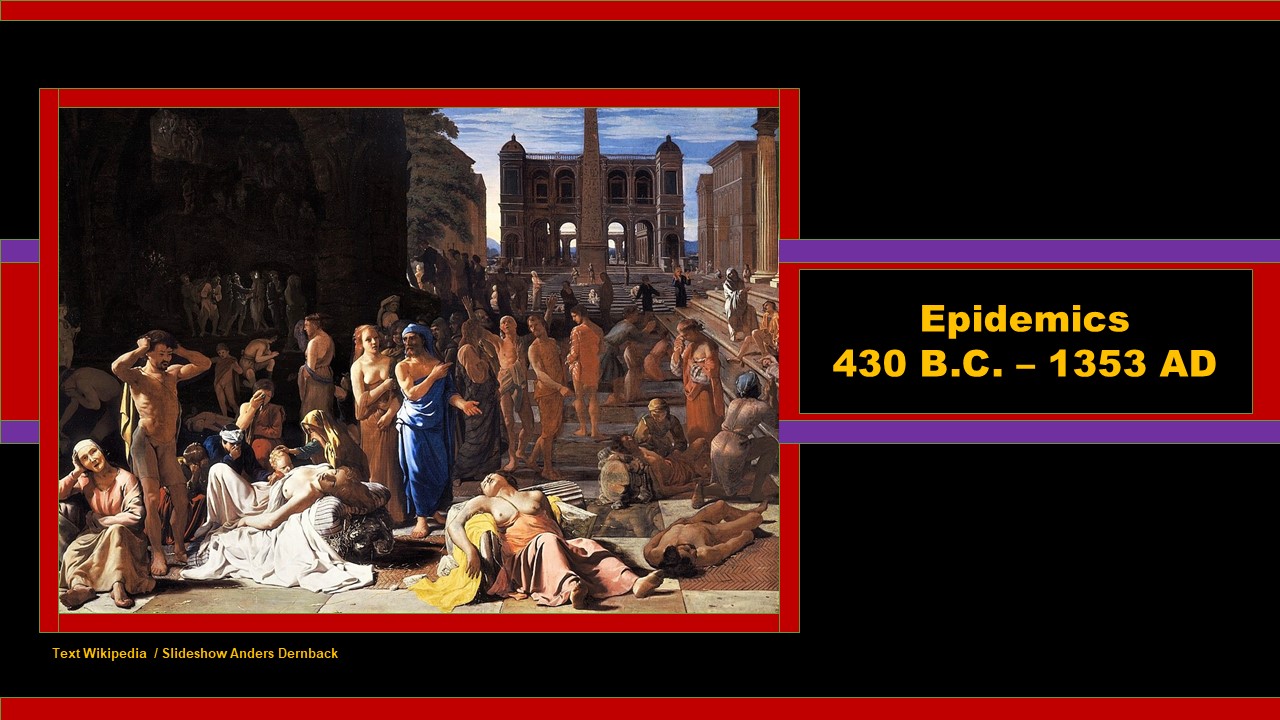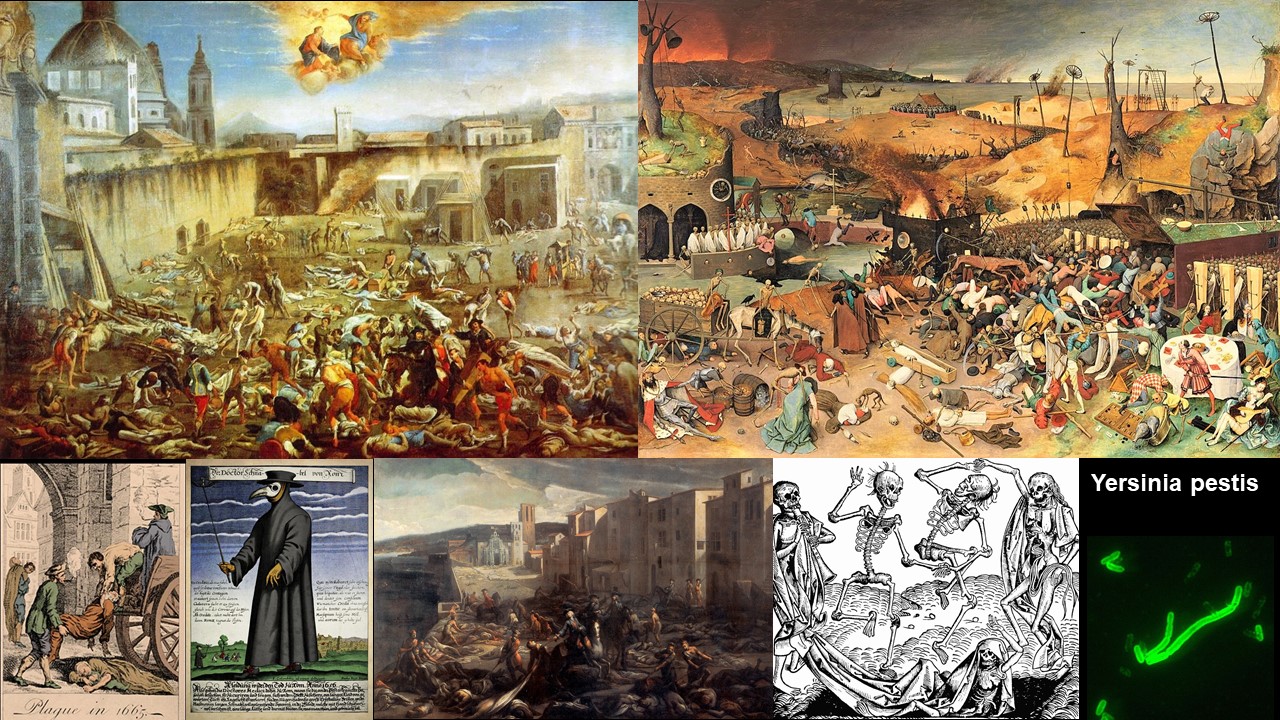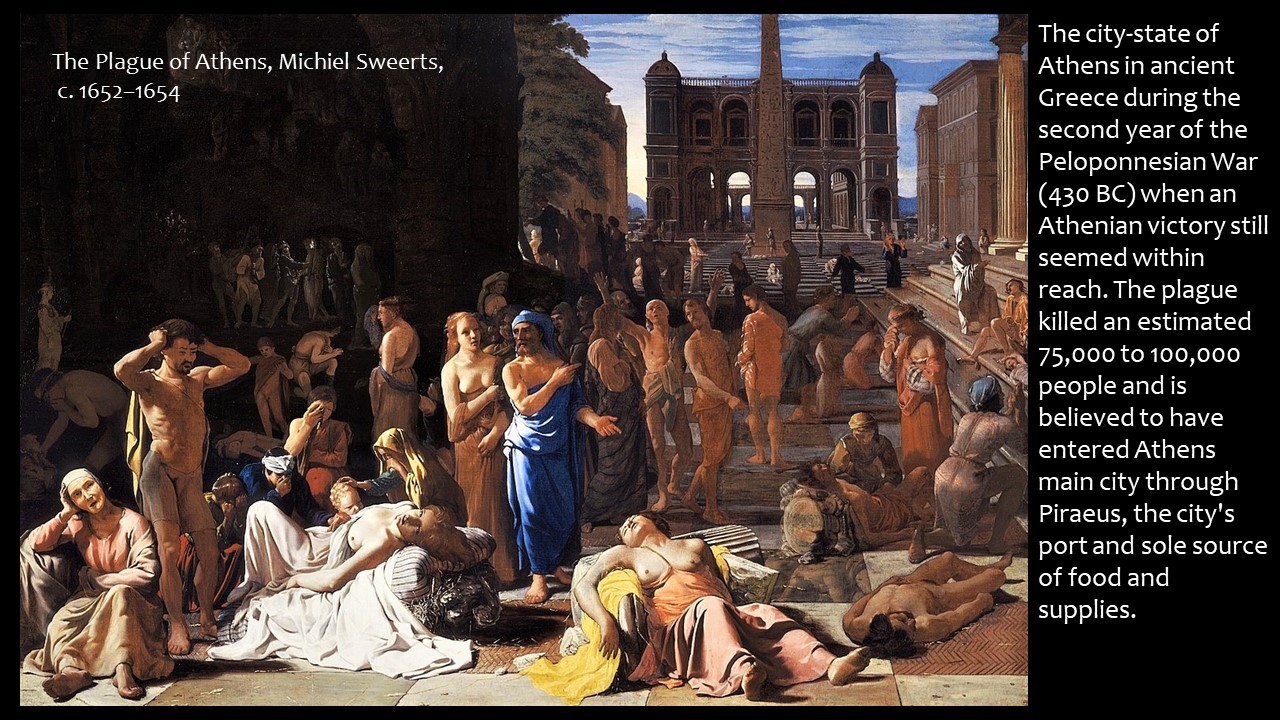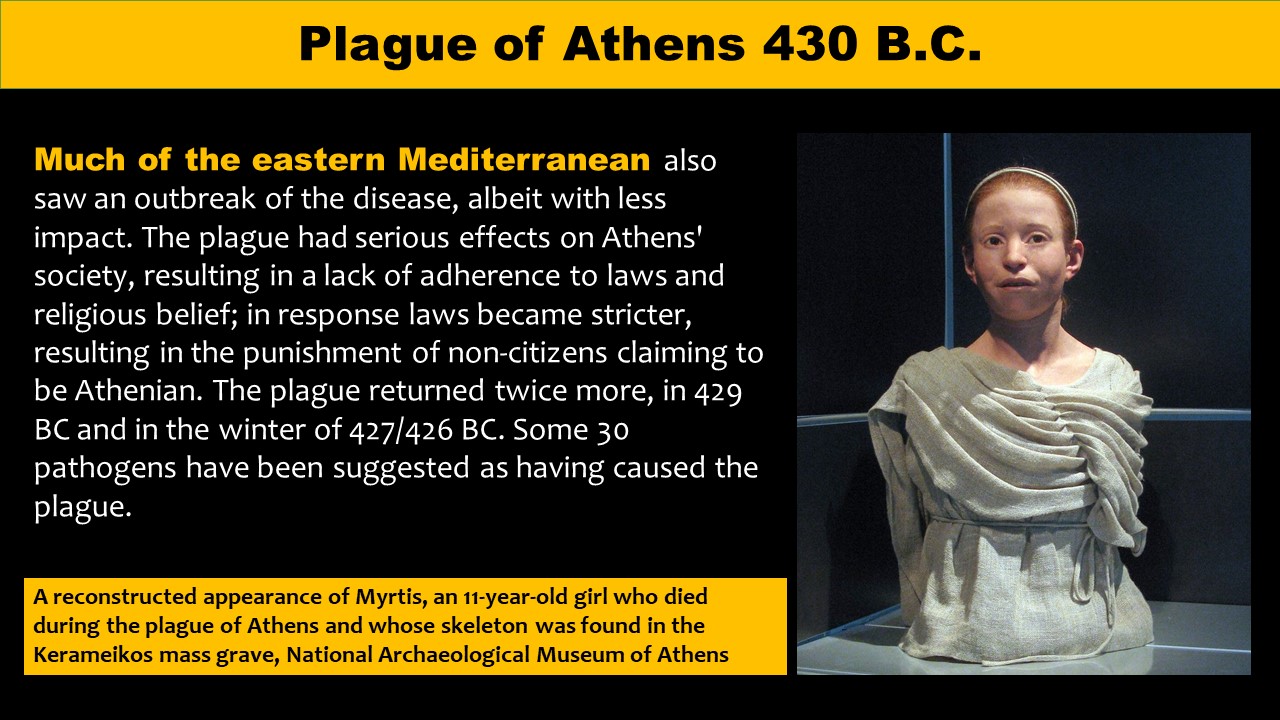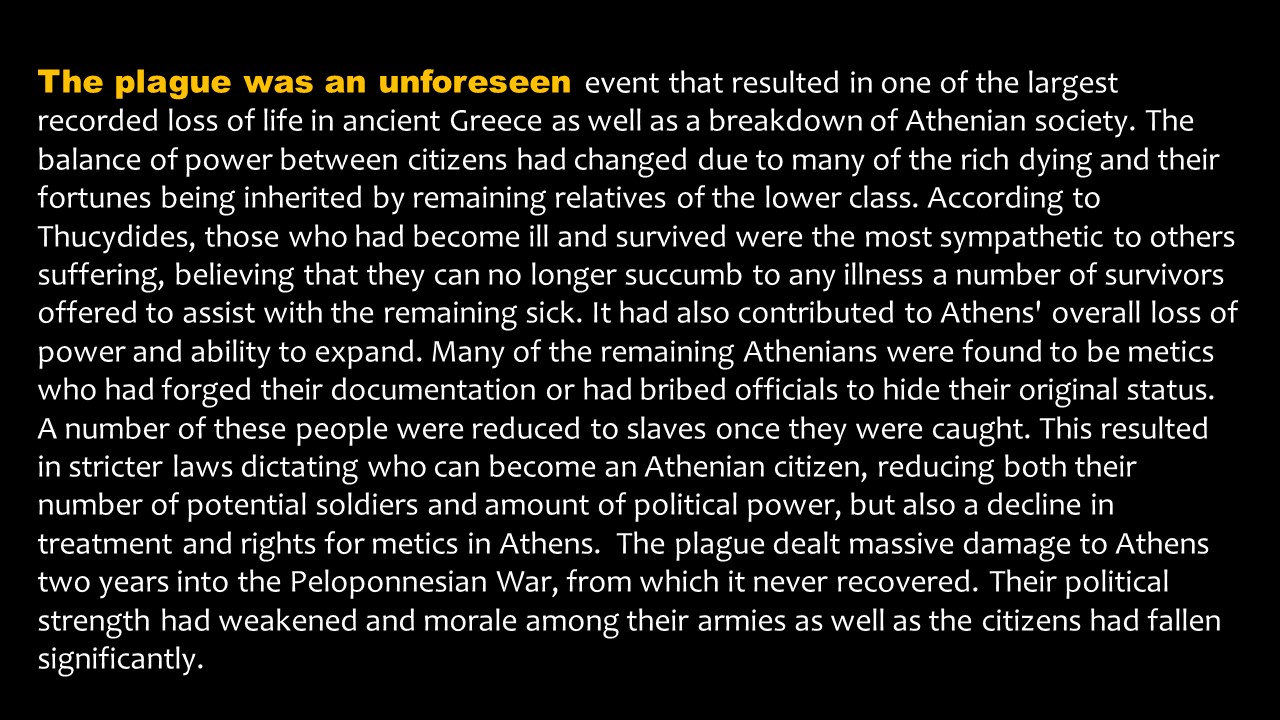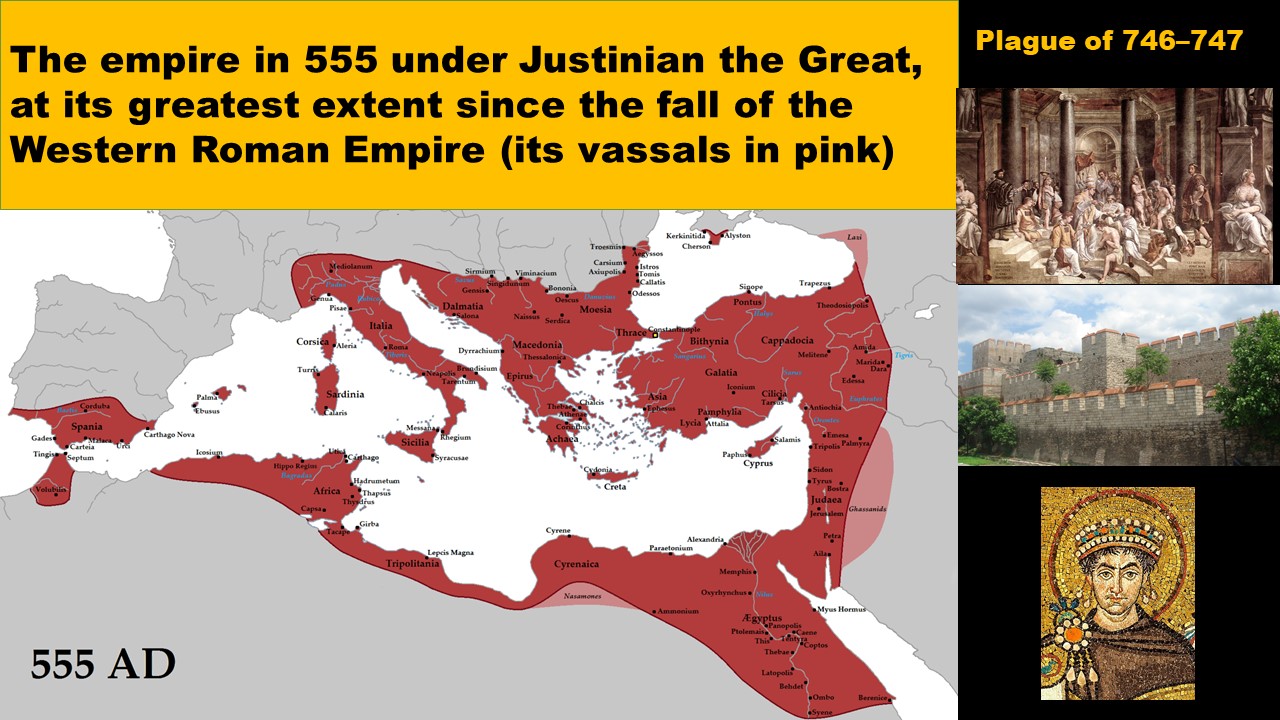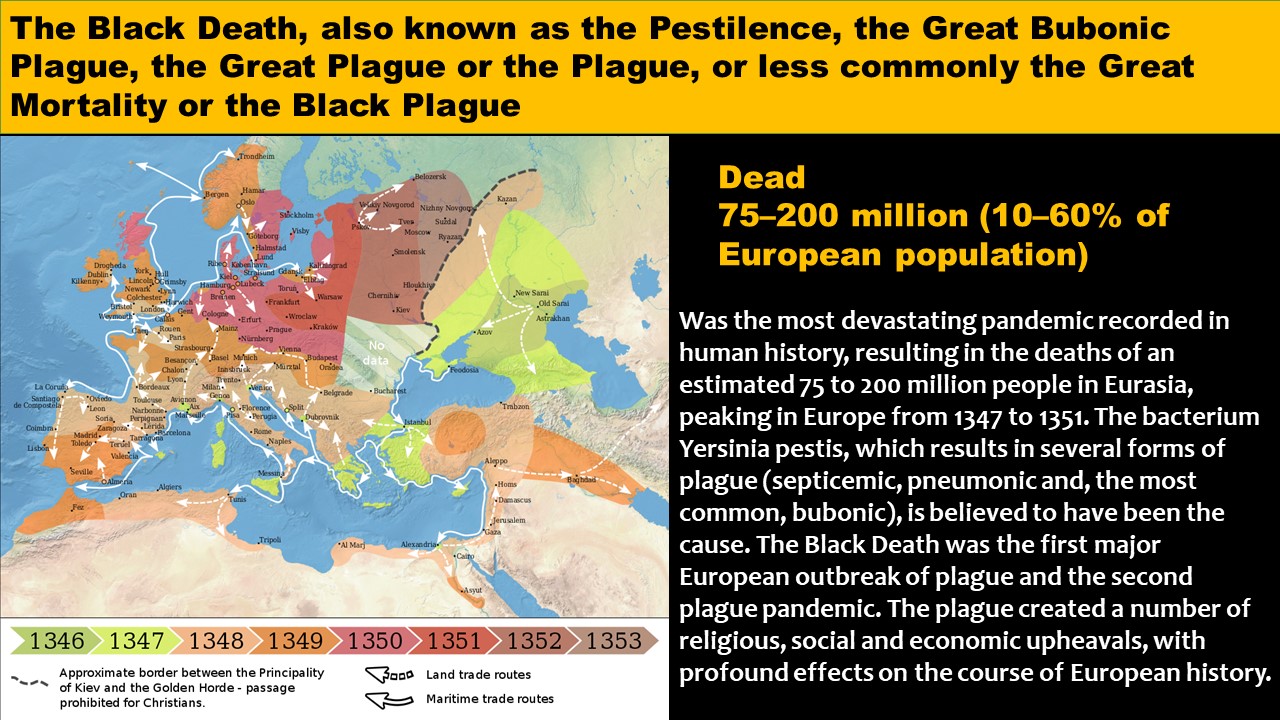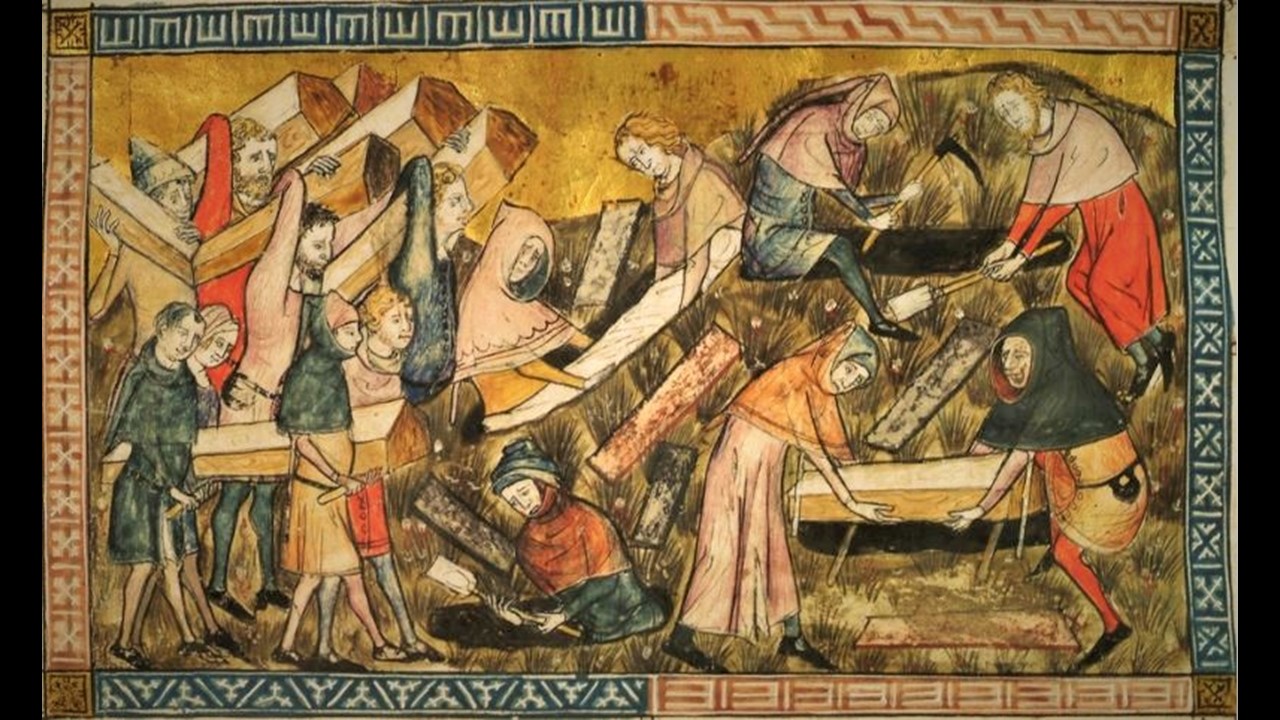Epidemics 430 BC to 1353 AD (English)
On Sale
$5.00
$5.00
The plague was an unforeseen event that resulted in one of the largest recorded loss of life in ancient Greece as well as a breakdown of Athenian society. The balance of power between citizens had changed due to many of the rich dying and their fortunes being inherited by remaining relatives of the lower class. According to Thucydides, those who had become ill and survived were the most sympathetic to others suffering, believing that they can no longer succumb to any illness a number of survivors offered to assist with the remaining sick. It had also contributed to Athens' overall loss of power and ability to expand. Many of the remaining Athenians were found to be metics who had forged their documentation or had bribed officials to hide their original status. A number of these people were reduced to slaves once they were caught. This resulted in stricter laws dictating who can become an Athenian citizen, reducing both their number of potential soldiers and amount of political power, but also a decline in treatment and rights for metics in Athens. The plague dealt massive damage to Athens two years into the Peloponnesian War, from which it never recovered. Their political strength had weakened and morale among their armies as well as the citizens had fallen significantly.




